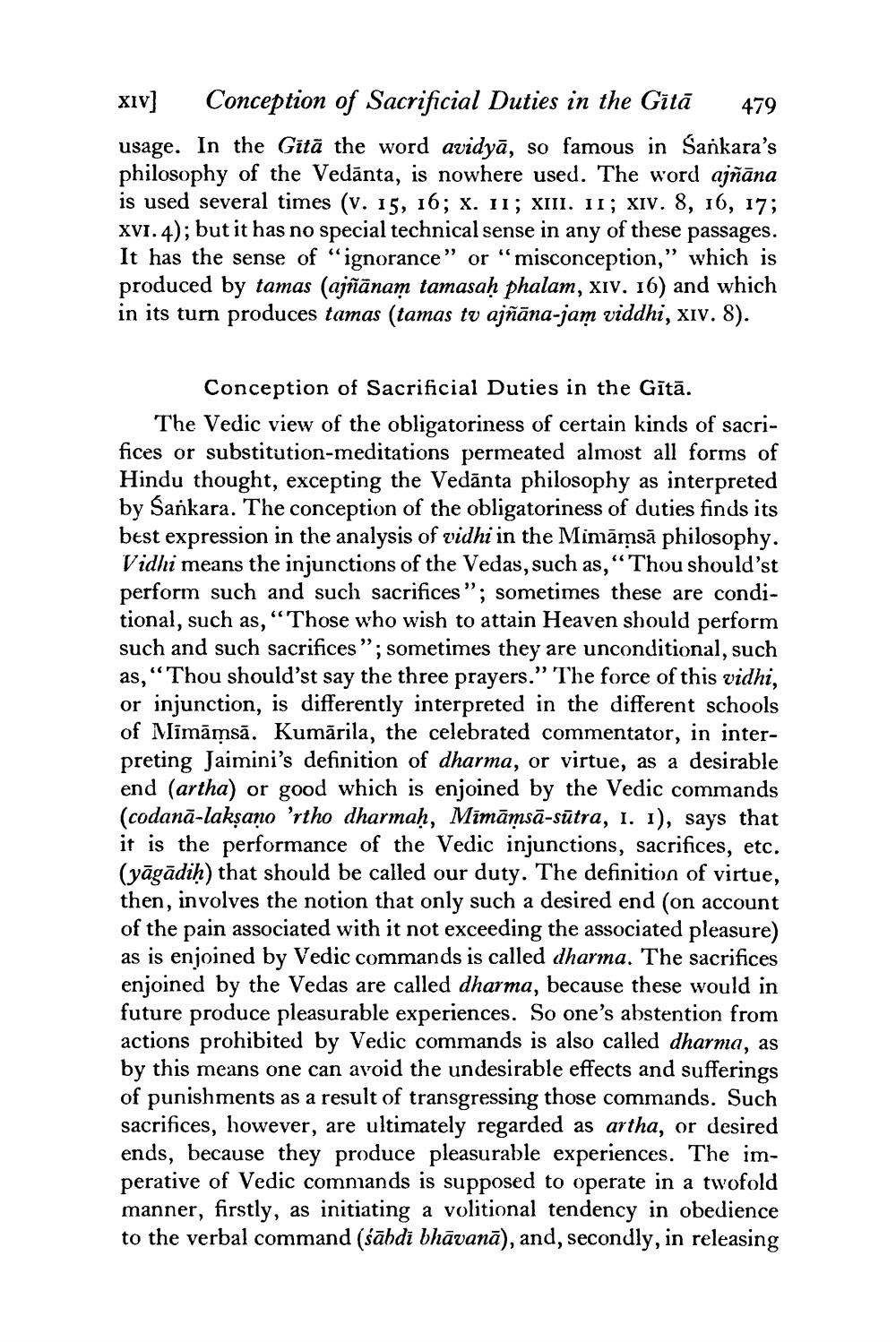________________
xiv] Conception of Sacrificial Duties in the Gītā 479 usage. In the Gitā the word avidyā, so famous in Sankara's philosophy of the Vedānta, is nowhere used. The word ajñāna is used several times (v. 15, 16; X. 11; XIII. II; xiv. 8, 16, 17; XVI.4); but it has no special technical sense in any of these passages. It has the sense of “ignorance" or "misconception,” which is produced by tamas (ajñānam tamasaḥ phalam, xiv. 16) and which in its turn produces tamas (tamas tv ajñāna-jam viddhi, xiv. 8).
Conception of Sacrificial Duties in the Gītā. The Vedic view of the obligatoriness of certain kinds of sacrifices or substitution-meditations permeated almost all forms of Hindu thought, excepting the Vedānta philosophy as interpreted by Sankara. The conception of the obligatoriness of duties finds its best expression in the analysis of vidhi in the Mināmsā philosophy. Vidhi means the injunctions of the Vedas, such as, “Thou should'st perform such and such sacrifices”; sometimes these are conditional, such as, “Those who wish to attain Heaven should perform such and such sacrifices”; sometimes they are unconditional, such as, “Thou should'st say the three prayers.” The force of this vidhi, or injunction, is differently interpreted in the different schools of Mīmāmsā. Kumārila, the celebrated commentator, in interpreting Jaimini's definition of dharma, or virtue, as a desirable end (artha) or good which is enjoined by the Vedic commands (codanā-lakșano 'rtho dharmaḥ, Mimāmsā-sūtra, 1. 1), says that it is the performance of the Vedic injunctions, sacrifices, etc. (yāgādiḥ) that should be called our duty. The definition of virtue, then, involves the notion that only such a desired end (on account of the pain associated with it not exceeding the associated pleasure) as is enjoined by Vedic commands is called dharma. The sacrifices enjoined by the Vedas are called dharma, because these would in future produce pleasurable experiences. So one's abstention from actions prohibited by Vedic commands is also called dharma, as by this means one can avoid the undesirable effects and sufferings of punishments as a result of transgressing those commands. Such sacrifices, however, are ultimately regarded as artha, or desired ends, because they produce pleasurable experiences. The imperative of Vedic commands is supposed to operate in a twofold manner, firstly, as initiating a volitional tendency in obedience to the verbal command (sābdi bhāvanā), and, secondly, in releasing




